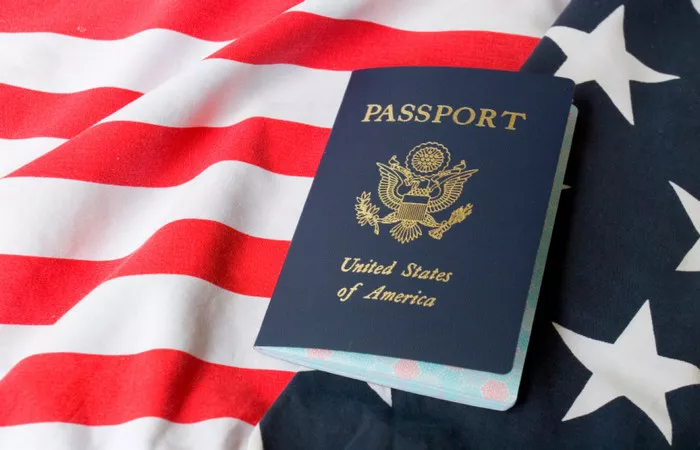In an increasingly globalized world, travel and immigration have become integral aspects of both personal and professional pursuits. Whether for leisure, education, or work, obtaining a visa is often a prerequisite for international travel. However, the visa application process can be complex and time-consuming, leaving many applicants wondering: How long does it actually take to apply for a visa? In this comprehensive guide, we’ll explore the factors that influence visa processing times, provide insights into various visa categories, and offer tips to streamline the application process.
Understanding Visa Processing Times
The duration of the visa application process varies significantly depending on several factors, including the applicant’s nationality, the type of visa being sought, the specific requirements of the destination country, and the efficiency of the processing consulate or embassy. While some visas can be obtained relatively quickly, others may require several weeks or even months to process.
Factors Influencing Visa Processing Times
1. Type of Visa: Different types of visas, such as tourist, student, work, or immigrant visas, have varying processing times. Generally, immigrant visas tend to have longer processing times compared to non-immigrant visas due to additional background checks and documentation requirements.
2. Destination Country: The visa processing times can also vary depending on the destination country’s immigration policies, diplomatic relations, and workload at the processing consulate or embassy. Countries with high volumes of visa applications may experience longer processing times.
3. Applicant’s Profile: Factors such as the applicant’s travel history, criminal record (if any), financial stability, and the purpose of travel can influence the processing time. Applicants with complex backgrounds or those requiring additional scrutiny may experience delays.
4. Peak Seasons: Visa processing times may be longer during peak travel seasons or when there is a surge in visa applications due to events such as conferences, festivals, or academic intakes.
5. Consular Processing Capacity: The efficiency and capacity of the consulate or embassy processing the visa applications play a significant role. Consular staff workload, staffing levels, and procedural changes can impact processing times.
6. Documentation Accuracy: Incomplete or inaccurate documentation can lead to delays as consular officers may request additional information or clarification from the applicant, prolonging the processing time.
7. Security Clearance and Background Checks: Certain visa categories, particularly those involving sensitive fields such as national security or healthcare, may require thorough background checks and security clearances, which can extend the processing time.
Average Visa Processing Times by Category
1. Tourist Visa: For many countries, tourist visas are among the quickest to process, often taking anywhere from a few days to a few weeks. However, processing times may vary depending on the applicant’s nationality and the destination country’s visa policies.
2. Student Visa: Student visas typically require more extensive documentation and background checks, especially for higher education institutions. Processing times can range from a few weeks to several months, depending on the country and the complexity of the application.
3. Work Visa: Work visas often involve sponsorship from an employer and may require labor market assessments or skill evaluations. Processing times can vary significantly, ranging from a few weeks to several months, depending on the country’s immigration policies and the specific requirements of the job.
4. Immigrant Visa: Immigrant visas, which grant permanent residency or citizenship, generally have longer processing times due to the thorough vetting process and quota restrictions. Processing times can range from several months to over a year, depending on factors such as visa category, country of origin, and the consulate’s workload.
5. Business Visa: Business visas for short-term visits, conferences, or meetings typically have shorter processing times compared to work visas. However, processing times can still vary depending on the destination country’s immigration policies and the nature of the business activities.
Tips to Expedite the Visa Application Process
1. Plan Ahead: Start the visa application process well in advance of your intended travel dates to account for potential delays. Research the specific requirements and processing times for your destination country and visa type.
2. Submit Complete Documentation: Ensure that all required documents are accurately completed and submitted with your visa application. Incomplete or inaccurate documentation can lead to processing delays or even visa denial.
3. Follow Instructions Carefully: Read and follow the instructions provided by the consulate or embassy carefully. Failure to comply with requirements or submission guidelines can result in delays or rejection of the visa application.
4. Provide Additional Information Promptly: If requested by the consular officer, provide any additional information or documentation promptly to avoid further delays in processing.
5. Consider Expedited Processing Services: Some consulates or embassies offer expedited processing services for an additional fee. While this option may expedite the processing time, it’s essential to weigh the cost against the urgency of your travel plans.
6. Maintain Communication: Stay informed about the status of your visa application by regularly checking the consulate or embassy’s website or contacting them directly. Be prepared to respond to any requests for additional information or interviews promptly.
7. Seek Professional Assistance: If navigating the visa application process seems daunting or if you encounter challenges, consider seeking assistance from immigration consultants or legal experts familiar with the visa requirements of your destination country.
Conclusion
The duration of the visa application process varies depending on various factors, including the type of visa, destination country, applicant’s profile, and consulate’s processing capacity. While some visas can be obtained relatively quickly, others may require weeks or even months to process. By understanding the factors influencing visa processing times and following the tips outlined in this guide, applicants can navigate the visa application process more effectively and minimize delays, ensuring a smooth travel experience.


